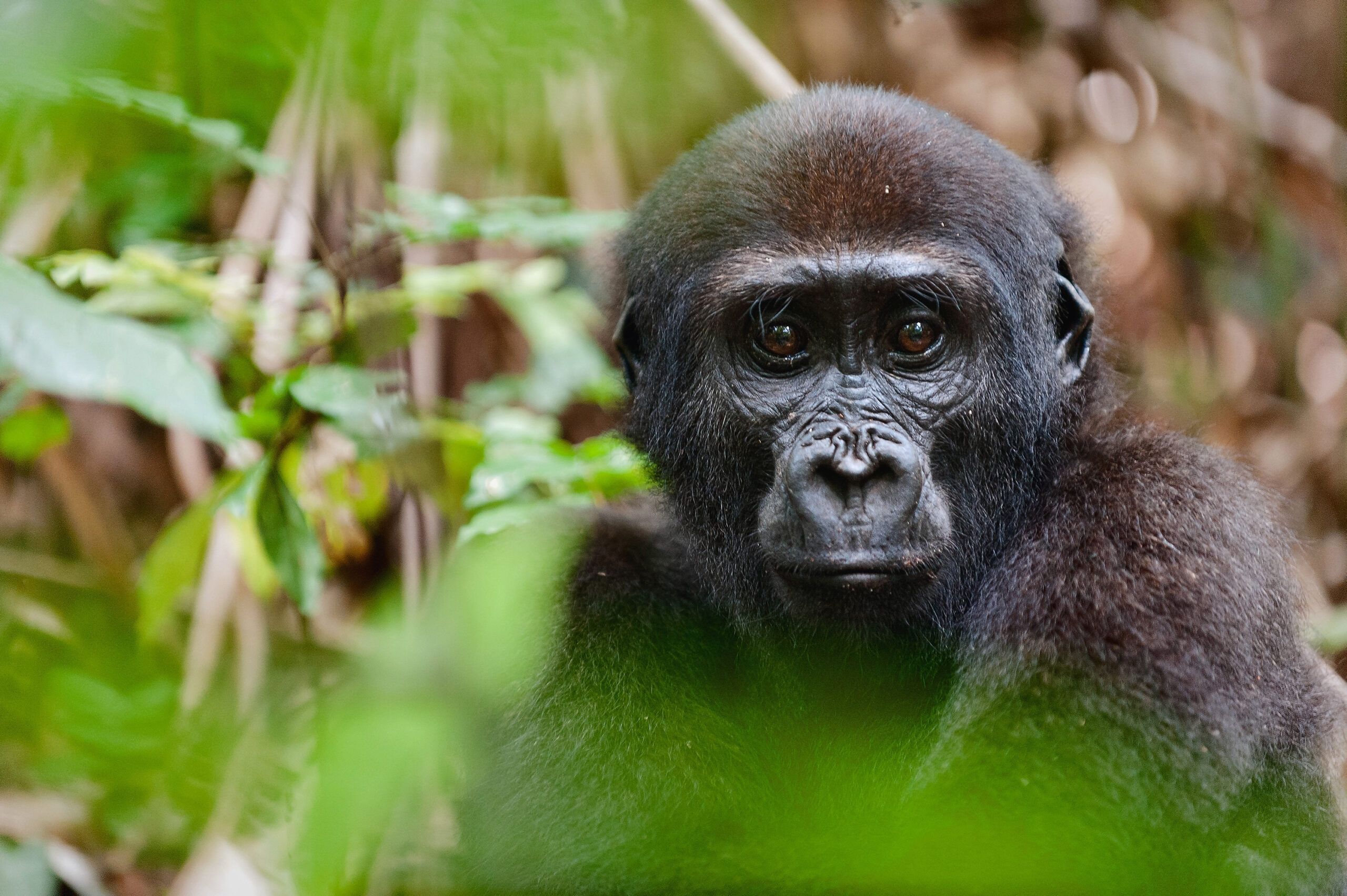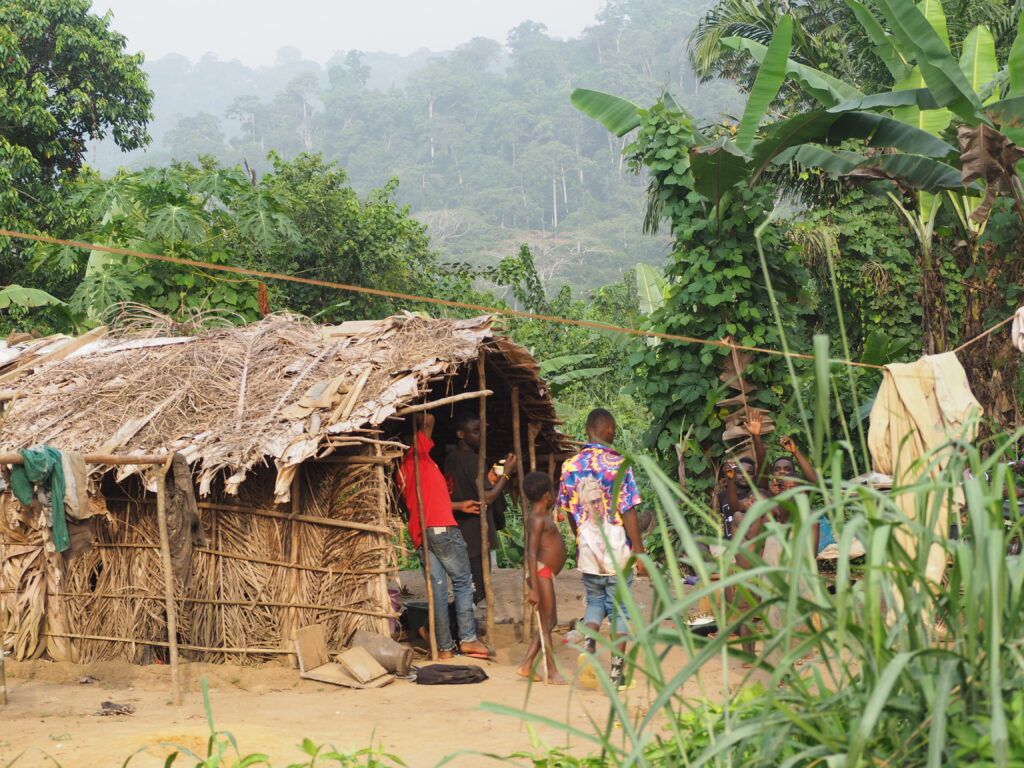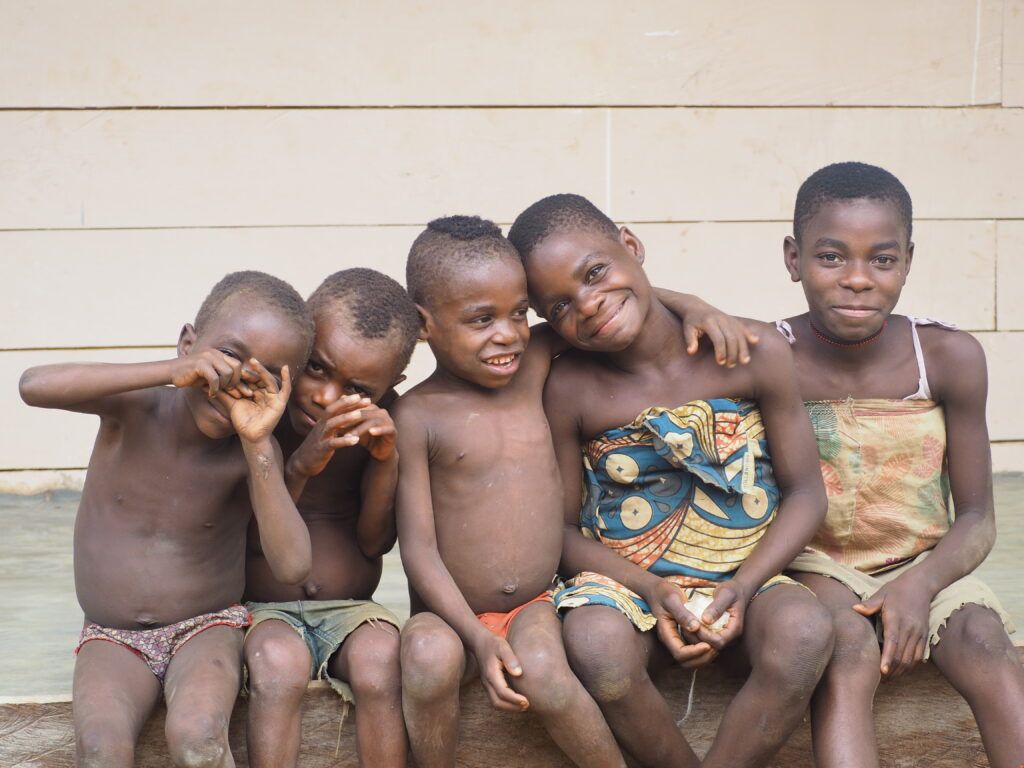Gorilla guardians in Campo Ma’an, Cameroon

Threats to Western lowland gorillas include habitat loss, demand for bushmeat, and an increasingly large agricultural and forestry footprint.
Western lowland gorillas are an endangered great ape. They’re found across West and Central Africa, including Cameroon where more than 20 million hectares of tropical forests form part of the vast Congo Basin. This forest is critical to tackling climate change, protecting biodiversity and supporting people’s livelihoods. Our conservation partners at African Wildlife Foundation (AWF) are on a mission for wildlife and wild lands to thrive in Africa. In 2015, AWF began work in Cameroon in recognition of its extraordinary biodiversity and variety of habitat types. Situated in the south west of the country, Campo Ma’an National Park is one of AWF’s priority landscapes. It’s home to great apes, including western lowland gorillas, and other endangered and critically endangered species such as forest elephants. It’s also home to indigenous peoples including the Bagyeli.
Assessing the threats facing local wildlife and communities
In Campo Ma’an, AWF works with the Ministry of Wildlife, local communities and the private sector to reduce threats to western lowland gorillas and other wildlife. These threats include habitat loss, demand for bushmeat, and an increasingly large agricultural and forestry footprint. The local Bagyeli are indigenous to Cameroon and mostly rely on hunting and gathering. Often described as custodians of the forest, their traditional culture and lifestyle is sustainable and non-exploitative. However, changes in national law and large-scale agro-forestry developments have forever affected their traditional way of life. Even though they have the right to collect certain forest products, such as medicinal and non-timber forest products from the park, they are no longer allowed to hunt, including for subsistence. Their intimate knowledge of the forest terrain and limited livelihoods options means that they are easily exploited by commercial hunters and by people in nearby worker camps, drawing them into illegal commercial hunting activities, or as bushmeat porters.
The project
PTES is supporting AWF’s pilot project which is adopting a new approach to reducing hunting pressure on western lowland gorillas in Campo Ma’an National Park. The project aims to transform Bagyeli livelihoods based on hunting, into livelihoods around gorilla guardianship, drawing on their cultural identity, protecting their rights and tapping into traditional hunting and tracking knowledge.
The pilot will train ten Bagyeli hunters from the Nyamabande village and the nearby nine Bagyeli villages in:
- biomonitoring techniques
- smart phone data collection
- techniques to identify individual gorillas and human activity in the park
- hygiene in the forest, and
- a code of behaviour to avoid infection transmission between humans and gorillas.
Joint patrols with Cameroon Government officials will be trialled over 60,000 ha in the northern section of Campo Ma’an National Park, bringing together technical expertise in biomonitoring and species protection with indigenous knowledge of the forest from the Bagyeli hunters. Information gathered during the pilot will also inform any scale up and replication in communities elsewhere in the landscape.
We want to give western lowland gorillas a brighter future; with your help we can make a difference.
Header image credit Sergey Uryadnikov, Shutterstock


